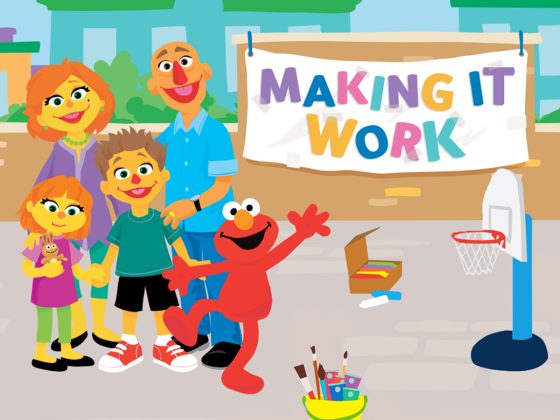
Making It Work
An interactive game that helps children build flexibility.
Help children play this game in which Julia and friends must choose different ways to respond to disappointments, surprises, and changes… and somehow “make it work.” (First, of course, they practice a calming strategy!)
Make new choices each time you play the game. You can also:
- Ask children, “How do your friends on Sesame Street feel when things don’t go according to plan? Have you ever had big feelings like that?” Talk about specific times when they themselves have felt frustrated, annoyed, or angry.
- Brainstorm ideas for calming down. Start with the ways Elmo and his friends use: popping bubbles, finding shapes, taking deep breaths. Together, think of other strategies that might help. Hugging a favorite toy? Putting on music? Make a list, using words and pictures, that can be used next time children need to work out big feelings.
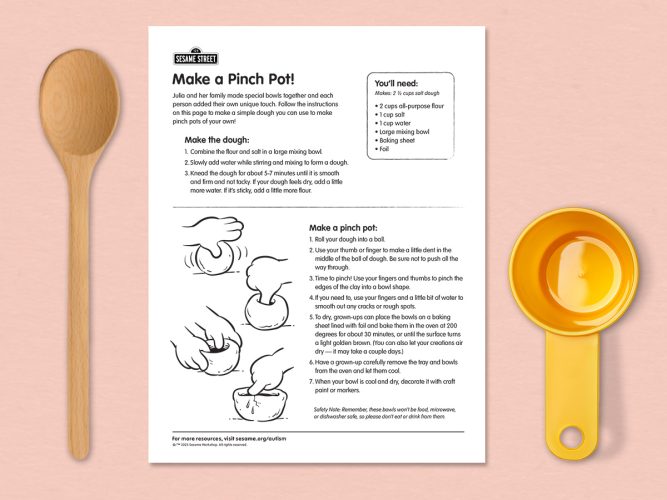
Make a Pinch Pot!
Simple craft instructions to help your family make pinch pots from homemade dough together.
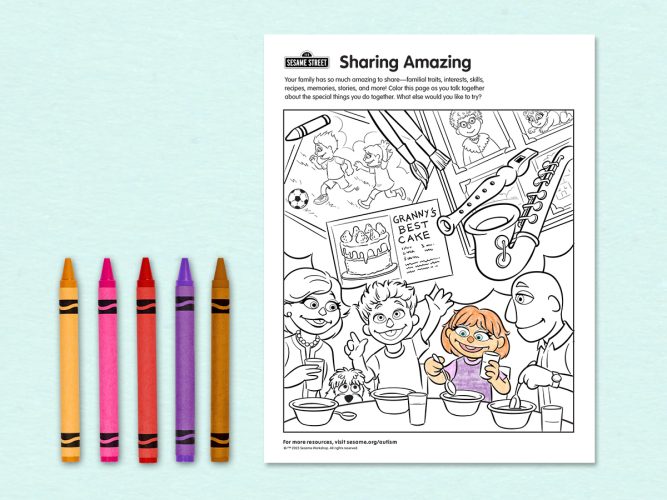
Sharing Amazing
An adult-child coloring page to spark ideas and connection.
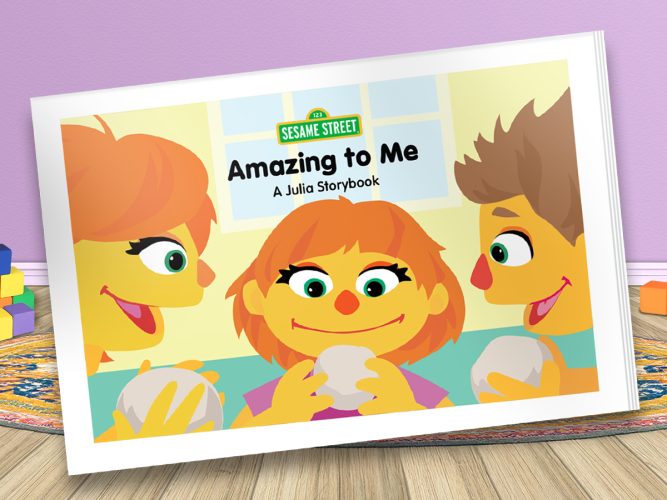
Amazing to Me
When Julia and her family do a special art activity together, Julia finds a way to add her own amazing touch!

Setting and Achieving Goals
With support from a caring grown-up, autistic children can set goals, make a plan, and accomplish big things! Read on for expert parenting advice for parents of autistic kids.
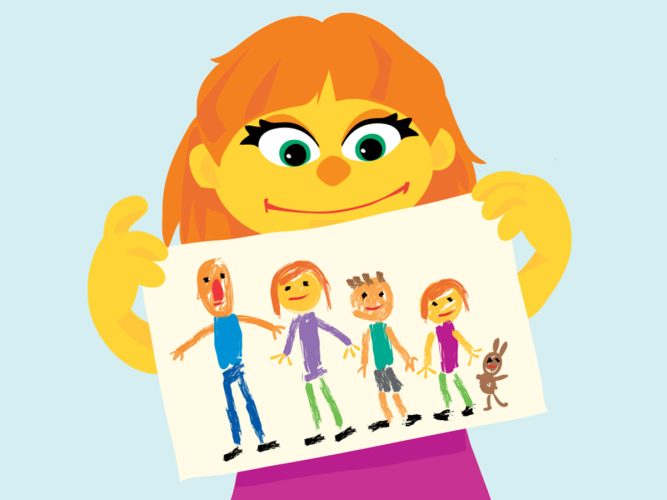
Autism and the Arts: A Conversation on Creativity and Community

Exploring the Amazing in Autistic Children: A Conversation with Camille Proctor, Founder of The Color of Autism Foundation
An article to help parents discover and support their autistic child’s unique perspective and personality
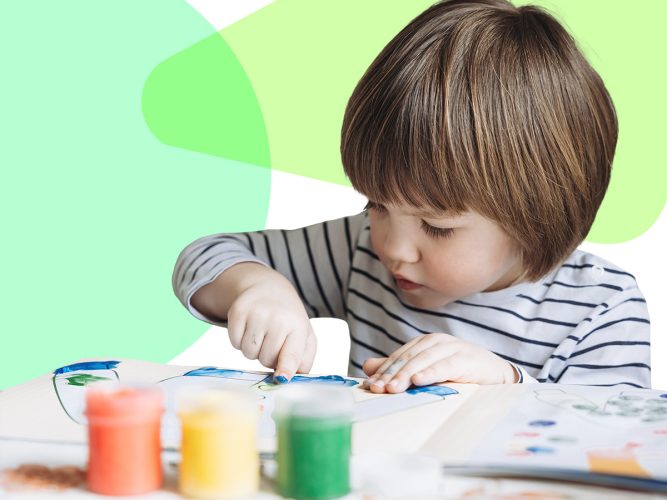
Creative, Talented, Amazing: A Conversation with Anna Wang, Co-founder of FCSN, about fostering autistic children’s talents
An article to help parents foster creative exploration and expression in their autistic child.
